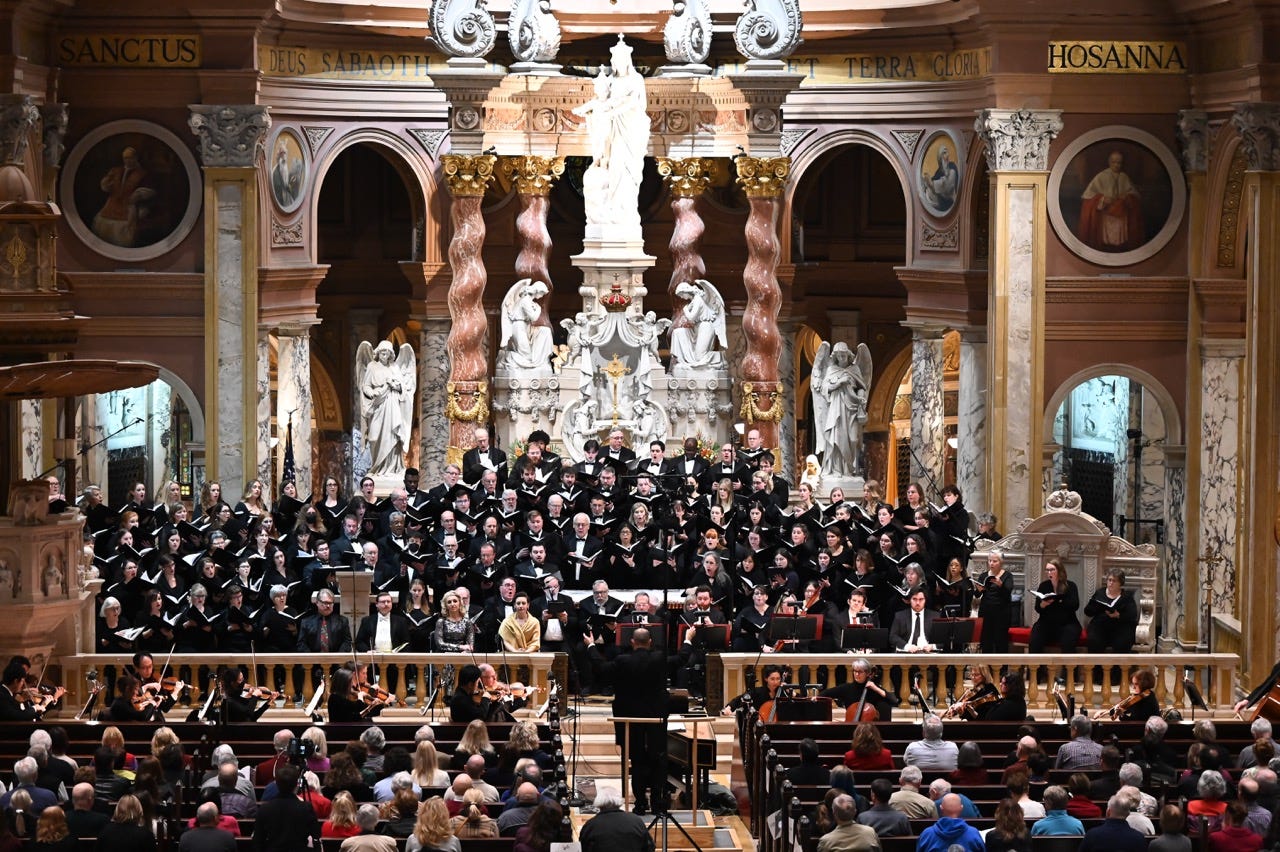O Captain! My Captain! Resurrecting Lincoln’s America in Song
A Buffalo world premiere of orchestrated songs by Lee Hoiby brings Lincoln’s spirit -- and Walt Whitman's poetry — to life

The words were Walt Whitman’s. The music was Lee Hoiby’s.
The backdrop was the Civil War.
American composer Lee Hoiby was drawn to Whitman’s poetry — especially the poems of the 1860s, rich with American themes and Lincoln’s shadow. The composer set several of Whitman’s poem to music, writing haunting, chromatic accompaniments for piano. The songs caught on in the classical world. Encouraged by their success, Hoiby later orchestrated them.
But after his death in 2011 at age 85, the orchestrations were quietly forgotten.
Why were they overlooked? Hoiby is still remembered for his lyrical songs and arias, some popularized over the years by opera diva Leontyne Price. His choral works are sung in both the United States and Britain — his Christmas cantata, A Hymn for the Nativity, is especially cherished. But his orchestral versions of the Whitman songs — despite their sweeping American spirit — languished in obscurity.
That is, until now.
Adam Luebke, director of the Buffalo Philharmonic Chorus, learned about the orchestrations from Mark Shulgasser, Hoiby’s longtime collaborator and partner. Their conversation inspired Luebke to get creative. He compiled a set of Hoiby’s orchestrated songs and gave them a powerful new title: A Whitman Symphony.
The world premiere of A Whitman Symphony takes place Saturday, June 14, at 7:30 p.m. at St. Peter and Paul Church in Hamburg. The Buffalo Philharmonic Chorus will be joined for this adventure by members of the Buffalo Chamber Players, led by Janz Castelo de Armas.
Luebke considers the event a true premiere.
“This music hasn’t been performed in this manner, and some of it hasn’t seen the light of day before now,” he points out.
The timing, he feels, is right.
“In terms of a unifying American voice, there’s not a lot that’s relevant — and Whitman could be that person,” he suggests. “He very clearly had a connection and belief in what Lincoln was doing, in keeping American ideals alive — ideals like democracy and self-determination.
“Whitman is a timeless American voice, and so revisiting this music and his words is timely for us. It’s exciting to hear the words amplified.”
One striking addition to A Whitman Symphony is Lincoln’s farewell address to Springfield, Illinois — the only text in the collection not written by Whitman. Hoiby set the words to music, and they will be performed in the concert.
Lincoln gave the brief, emotional speech from his railroad car in 1861 as he left Springfield for Washington in the pouring rain. He told the crowd:
“I now leave, not knowing when, or whether ever, I may return, with a task before me greater than that which rested upon Washington... Without the assistance of that Divine Being who ever attended him, I cannot succeed. With that assistance I cannot fail.”
Luebke feels a touch of serendipity as he reflects on how these words resonate in Western New York.
“One thing I didn’t realize was Lincoln passed through this area,” he says.
In Westfield, Lincoln sentimentally stopped to kiss Grace Bedell, a little girl who had written to suggest he grow a beard. In Buffalo, he attended a service at the Unitarian Church at Eagle and Franklin Streets, brought there in a carriage by former President Millard Fillmore.
The upcoming concert feels, in some ways, like a tribute to that visit.
Hoiby’s settings and Whitman’s words guide listeners back to Lincoln’s time — the pain, the hope, the national reckoning. The centerpiece is O Captain! My Captain!, Whitman’s 1865 elegy for Lincoln:
O Captain! my Captain! our fearful trip is done,
The ship has weather’d every rack, the prize we sought is won,
The port is near, the bells I hear, the people all exulting,
While follow eyes the steady keel, the vessel grim and daring;
But O heart! heart! heart!
O the bleeding drops of red,
Where on the deck my Captain lies,
Fallen cold and dead.
Whitman’s words mourn Lincoln’s death with aching clarity. Hoiby set all three stanzas to impassioned harmonies and restless chromaticism, capturing the sorrow and grandeur of the moment.
And Whitman’s poetry moves beyond that shattering event, embracing transcendent themes.
“Not all of the texts emphasizes Lincoln,” Luebke observes. “It’s Whitman’s voicing of the enduring spirit of humankind — self actualization, which is a valuable message to reinvigorate.”
The performance, he adds, is more than just a choral event.
“It’s not strictly choral, not strictly orchestral,” Luebke explains. “Some of it is chorus alone, some is chorus with orchestra. It has a lot of varied textures.”
That variety brings Whitman’s poetry into sharper focus.
“The music helps us see the texts in a new light,” Luebke reflects.
And it invites the audience to listen with more intention.
“The best preparation is to come in with an openness to really hearing the texts,” says Luebke. “So much of our concert experience is just about enjoying the music.
“This is a perfect opportunity to hear how the ideas play off one another.”
Mary Kunz Goldman is known in Buffalo for her long career with The Buffalo News as classical music critic. She is the author of the book “Pennario,” a bittersweet memoir about her friendship with the great concert pianist Leonard Pennario — and also “Sketches of Buffalo,” a book of drawings of her hometown, available at the Totally Buffalo Store.
Enjoying stories like this one? Click on MaryKunzGoldman.Substack.com. to subscribe — it’s free, and you’ll get the next adventure delivered straight to your inbox.
Thanks for reading!
Concert Info
The world premiere of A Whitman Symphony takes place Saturday, June 14, at 7:30 p.m. at St. Peter and Paul Church in Hamburg.
Watch Adam Luebke discuss the music and the story behind the project in this video:





